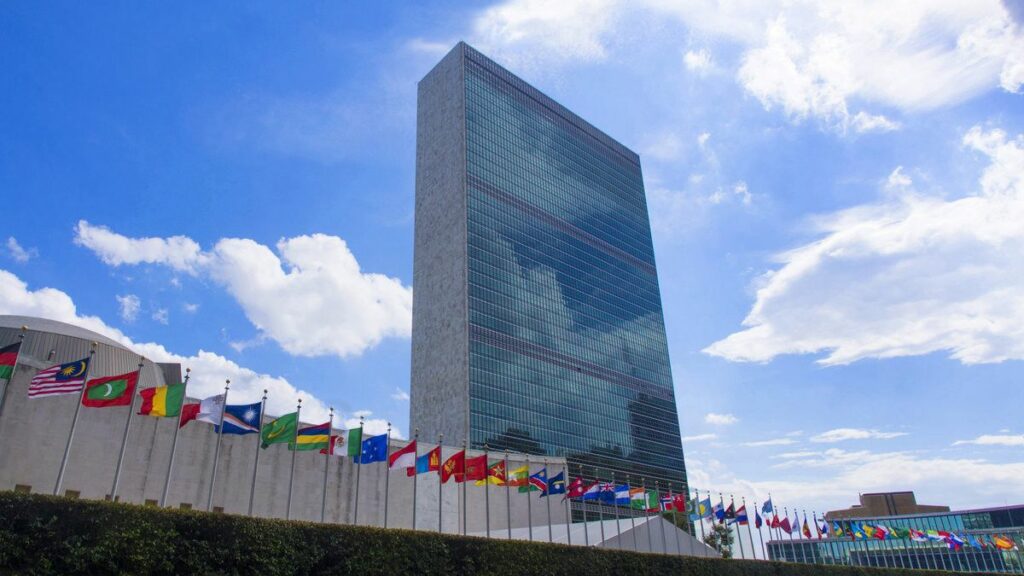Empowerment and Risk Reduction: What the Wise Drafters of UDHR Knew
Guiding Principles for CSW66
As the 66th session of the Commission on the Status of Women addresses the priority theme of “Achieving gender equality and the empowerment of all women and girls in the context of climate change, environmental and disaster risk reduction policies and programmes,” we call attention to the provision in the Universal Declaration of Human Rights which stands out for its acknowledgment of “the only right in the Declaration that specifically devolves to a group rather than an individual.”[1]
That unique group was recognized in article 16(3) as the foundation of civilization itself: “The family is the natural and fundamental group unit of society and is entitled to protection by society and the State.” The implications for the work of CSW66 are profound: empowerment of women and girls begins in the family, and the most effective risk reduction policy is to strengthen the family.
The drafters of the UDHR knew of the universal primacy of the natural family. According to human rights lawyer and judge Manfred Nowak, the phrase “natural and fundamental group unit of society” was intended “to emphasize that despite various traditions and social structures, a pillar of all societies is the family as the smallest group unit.”[2] The influential Lebanese delegate Charles Malik, for example, emphasized that of all the social groups, only “the family deriving from marriage is the natural and fundamental group unit of society” and is “the cradle of all human rights and liberties.”[3] Why this is so was explained decades later by another delegate to the Commission on Human Rights, US Ambassador Michael Novak.
The family is the seedbed of economic skills, money habits, attitudes toward work, and the arts of financial independence. The family is a stronger agency of educational success than the school. The family is a stronger teacher of the religious imagination than the church. Political and social planning in a wise social order begins with the axiom What strengthens the family strengthens society…. The roles of a father and a mother, and of children with respect to them, is the absolutely critical center of social force.[4]
The family is also the absolutely critical center of sustainable development, as emphasized in the Doha Declaration: “The family is not only the fundamental group unit of society, but is also the fundamental agent for sustainable social, economic and cultural development.”[5]
No wonder that when the family fails, society collapses, as also noted by Michael Novak: “Throughout history, nations have been able to survive a multiplicity of disasters—invasions, famines, earthquakes, epidemics, depressions—but they have never been able to survive the disintegration of the family.”[6]
No wonder that over a hundred national constitutions echo UDHR 16(3) with various descriptions of the family such as “the basis of the nation’s survival” (Hungary), “the cornerstone of the preservation and the advancement of the Nation” (Greece), “the fundamental basis of society” (El Salvador), “the nucleus of society” (Qatar), “the basic institution of society” (Colombia), “the basic structure of society” (Tunisia), “the fundamental pillar of the society” (Afghanistan), and “the natural foundation of human society” (Cameroon).
And no wonder that Pope Francis declared, “Every threat to the family is a threat to society itself…. Protect your families! See in them your country’s greatest treasure and nourish them always.”[7]
To achieve the greatest empowerment of women and girls, as well as the most effective risk reduction policy possible, we urge that the work of CSW66 honor the treaty obligation in article 10.1 of the International Covenant on Economic, Social and Cultural Rights: “The widest possible protection and assistance should be accorded to the family, which is the natural and fundamental group unit of society.”
International Organization for the Family
United Families International
Worldwide Organization for Women
American Family Association of New York
REAL Women of Canada
HazteOir.org
FamilyPolicy.ru (Russia)
Latin American Alliance for the Family
Institute for Family Policy (Spain)
Universal Peace Federation
[1] Glenn Mitoma, “Charles H. Malik and Human Rights: Notes on a Biography,” Biography 33.1 (Winter 2010), 226.
[2] Manfred Nowak, UN Covenant on Civil and Political Rights. CCPR Commentary (Kehl am Rhein, Germany: N.P. Engel, 1993), 404.
[3] Johannes Morsink, The Universal Declaration of Human Rights: Origins, Drafting, and Intent (Philadelphia: University of Pennsylvania Press, 1999), 254.
[4] Michael Novak, “The Family Out of Favor,” Harper’s, April 1976, pp. 42-43.
[5] Doha Declaration, https://www.difi.org.qa/doha-declaration/.
[6] Michael Novak, “The Family Out of Favor,” Harper’s, April 1976, pp. 42-43.
[7] “Address of His Holiness Pope Francis,” Manila, 16 January 2015, https://www.vatican.va/content/francesco/en/speeches/2015/january/documents/papa-francesco_20150116_srilanka-filippine-incontro-famiglie.html.
